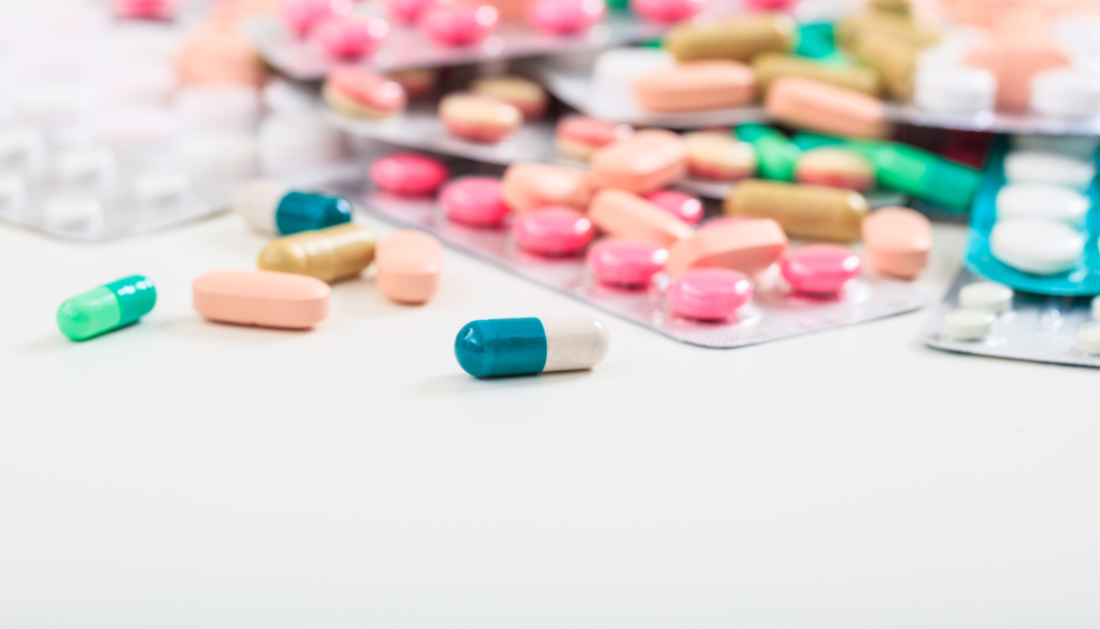

Mark Mikhael, a pharmacist, has shed 50 pounds in the past year. He no longer has diabetes and is “at my ideal body weight,” with a cholesterol level below 200 for the first time in twenty years. “I feel fantastic,” he stated.
Mikhael, like millions of other people, attributes his weight loss success to a new class of medications. However, he does not use the brand names Wegovy or Zepbound. Mikhael, CEO of Orlando, Florida-based Olympia Pharmaceuticals, has been getting by on his own supply, injecting himself with replicas of his company’s medications.
He is far from alone. Mikhael and other industry officials estimate that several large compounding pharmacies, including his, provide up to 2 million American patients with regular doses of semaglutide, the scientific name for Novo Nordisk’s Wegovy, Ozempic, and Rybelsus formulations, or tirzepatide, the active ingredient in Eli Lilly’s Zepbound and Mounjaro.
The drug-making behemoths are adamantly opposed to the compounding business. Novo Nordisk and Lilly associate the compounders with online cowboys and uncontrolled medical spas marketing counterfeit semaglutide, and they have powerful legal teams working to stop them. Novo Nordisk has launched at least 21 cases around the country against companies that profess to make replicas of their pharmaceuticals, according to Brianna Kelley, a company spokesman, and advises doctors to avoid them. The FDA, too, has warned about the possible dangers of the substances, and prominent obesity medical organizations strongly advise patients against using them.
However, while there are some murky areas, this is not an illegal black market.
When a drug is in short supply, the FDA authorizes and even encourages compounding pharmacies to create and sell copies, and the phenomenally popular GLP-1 treatments are experiencing shortages, which were first reported in March 2022 for semaglutide and December 2022 for tirzepatide. The medications have shown extraordinary success in weight loss. They also show promise in the treatment of heart, kidney, and liver illnesses, as well as Alzheimer’s disease and drug addiction.
In recent years, the United States’ health-care system has grown to rely on compounding pharmacies, many of which are run as charities, to fill supply gaps for critical pharmaceuticals such as cancer treatments cisplatin, methotrexate, and 5-fluorouracil.
Most compounded medications are outdated, low-cost generics. Semaglutide and tirzepatide, on the other hand, are patented and generate billions of dollars in revenue for Novo Nordisk and Lilly each year. This year, sales of diabetes and weight loss treatments made Novo Nordisk the most valuable firm in Europe, while Lilly was the world’s largest pharmaceutical corporation.
While the firms struggle to meet demand, they fiercely oppose compounders’ freedom to manufacture and sell copies. Lilly spokesperson Kristiane Silva Bello stated that the business is “deeply concerned” about “serious health risks” from compounded pharmaceuticals that “should not be on the market.”
However, they are marketed. Even Hims & Hers Health, a telemedicine provider that began with erectile dysfunction medications, is now offering compounded semaglutide. It ran drug advertisements during NBA playoff games. (According to a Hunterbrook Media story, Hims & Hers’ semaglutide supplier has come under legal inquiry.)
The compounded formulations are much less expensive than the branded medications. Patients pay between $100 to $450 per month, vs list prices of around $1,000 to $1,400 for Lilly and Novo Nordisk medications.
Five compounders and distributors interviewed for this paper stated that they do due diligence on each lot of semaglutide or tirzepatide they acquire or create, adhering to purity, sterility, and consistency criteria comparable to those used in the commercial medicine business. Compounders follow tight federal and state regulations, they stated.
However, the basic chemicals used in the compounded forms may differ from those used by Novo Nordisk and Lilly, according to GLP-1 co-inventor Jens Juul Holst of the University of Copenhagen, who also emphasizes the importance of careful drug manufacture to avoid potentially adverse immunological reactions.
According to FDA officials, reports of negative effects from taking compounded versions have not aroused serious concerns. However, everyone in the industry, including the compounders, is concerned that a single batch of a poorly manufactured medicine may kill or maim people, destroying trust in their business.
“I liken the compounding industry to the airline industry,” Mikhael said. “When you have an airline crash, it hurts everybody.”
Warnings from the past
In 2012, the New England Compounding Center issued a tainted injectable steroid, resulting in the deaths of at least 64 people and the injuries of hundreds more.
In response, Congress and the FDA strengthened their monitoring. Mikhael’s company is an outsourcing facility, also known as a 503B compounding pharmacy, named after a provision of the 2013 law that mandated new drug manufacturing regulations. Companies are authorized to produce slightly altered versions of FDA-approved medications in response to shortages or a patient’s specific requirements.
The statute established two types of compounding pharmacies: the FDA oversees bigger 503B compounders using commercial drug company standards, whereas 503A pharmacies synthesize smaller batches of medications and are mostly supervised by state boards of pharmacy.
The 503A facilities also manufacture compounded semaglutide and tirzepatide for hundreds of thousands of patients. Like the 503Bs, these businesses take the active substance, which is produced as a powder at FDA-registered factories, primarily in China, and reconstitute it with sterile water and an antimicrobial in little glass vials.
According to Mikhael, compounding pharmacies may account for up to 30% of semaglutide sales in the United States, but he cautions that this is a “wild ballpark figure” because no one, including the FDA, tracks industry sales.
Compounders advise corporations to raise production if they are concerned about competition. The two diet medications, like the hundreds of other drugs they create for hospitals and medical practices, are considered important by the compounders.
“If you don’t want a 503B facility to make a copy, it’s pretty simple: Don’t go short,” said Lee Rosebush, chair of a trade association for 503B pharmacies. “FDA created this system because these are necessary drugs.”
Novo Nordisk has not indicated why it is unable to meet demand, but the bottleneck appears to be the company’s inability to fill and sterilize enough of its particular medication auto-injectors, according to Evan Seigerman, a managing director at BMO Capital Markets.
The business stated on June 24 that it would invest $4.1 billion in new production lines at its Clayton, North Carolina, location. Last year, the FDA issued a warning for procedural infractions at the location, as well as additional concerns at an Indiana factory recently acquired by Novo Nordisk.
Compounding for dummies
The FDA has registered at least 28 businesses to make or distribute semaglutide, the majority of which are based in China. According to Scott Welch, owner of a 503A pharmacy in Arlington, Virginia, at least half of the enterprises have entered the market in the last year, lowering the raw material’s price by 35%.
Compounders can purchase powdered semaglutide from some US wholesalers for less than $4,000 per gram, according to Matthew Johnson, president and CEO of distributor Pharma Source Direct. That works up to as cheap as $10 per monthly 2.5-microgram dose, excluding overhead and other costs.
While Ozempic or Wegovy patients inject the drug using a Novo Nordisk device, patients using compounded drugs draw it from a vial with a little needle, similar to how diabetics take insulin.
Some medical clinics offer the compounded medicine to patients as part of a weight loss package, with a markup. Tabitha Ries, a single mother of six who works as a home health care aide in Garfield, Washington, discovered an internet clinic last July that charged her $1,000 for three months of semaglutide and counseling. She’s shed 35 pounds.
She receives the medication from Mindful Weight Loss, a largely telehealth operation managed by Manhattan Beach, California physician Vivek Gupta. Gupta said he’s prescribed the weight reduction medications to 1,500 patients, with roughly 60% taking compounded versions from a 503A pharmacy.
He hasn’t noticed a significant difference in patient outcomes between the branded and compounded formulations, though “some people say the compounding is a little less effective,” Gupta added.
He admitted that using a non-FDA-approved product has some risk, and he required patients to sign an informed consent release.
“Nothing in life is without risk, but I would also argue that the status quo is not safe for people who need the medicine and can’t get it,” he said. “They’re constantly triggered by all this food that’s causing their weight to go up and their sugar to go high, increasing their insulin resistance and affecting their limbs and eyes.”
Compounding semaglutide is a useful sideline for pharmacists like him, Welch said, especially given the drop in drug sales revenue that has forced many independents to close in recent years. He estimates that compounding medications, rather than standard prescriptions, accounts for 95% of his revenue.
Compounded semaglutide should be distinguished from unregulated powders offered as “generic Ozempic” and similar names, which could be contaminated or counterfeit, according to FDA spokesperson Amanda Hils. However, because compounded forms of the medicine are not FDA-approved, individuals who manufacture, prescribe, or use them should have “an increased level of responsibility or awareness,” she stated.
Corporate battles
In cases brought against competitors, Novo Nordisk and Lilly claim that their own testing revealed germs and other contaminants in compounding pharmacy items. The firms also claim patent infringement, but compounders, citing the FDA loophole for medications in insufficient supply, appear to have beaten that argument for the time being.
When the FDA removes the medications from the shortage list, 503B compounders must promptly cease selling them. Scott Brunner, CEO of the Alliance for Pharmacy Compounding, which represents 503A compounders, believes that smaller compounders may be able to make their medications for fewer patients.
The depletion of the compounded medicine supply may come as a surprise to patients.
“I dread it,” said David Wertheimer, an internist in Franklin Lakes, New Jersey, who prescribes compounded semaglutide to some patients. “People are not going to be able to plunk down a grand every month. A lot of people will go off the drug, and that’s a shame.”
more recommended stories
 Advanced Prostate Cancer and Serial ctDNA Analysis
Advanced Prostate Cancer and Serial ctDNA AnalysisKey Takeaways Serial liquid biopsies using.
 Tuberculosis Breakthrough with Experimental Antibiotics
Tuberculosis Breakthrough with Experimental AntibioticsKey Takeaways Experimental antibiotics disrupt a.
 National Healthy Longevity Trial Receives Federal Support
National Healthy Longevity Trial Receives Federal SupportKey Summary Up to $38 million.
 Vascular Health Linked to Early Alzheimer’s Brain Changes
Vascular Health Linked to Early Alzheimer’s Brain ChangesKey Takeaways Brain vascular health is.
 Red Blood Cells Improve Glucose Tolerance Under Hypoxia
Red Blood Cells Improve Glucose Tolerance Under HypoxiaKey Takeaways for Clinicians Chronic hypoxia.
 Nanoplastics in Brain Tissue and Neurological Risk
Nanoplastics in Brain Tissue and Neurological RiskKey Takeaways for HCPs Nanoplastics are.
 AI Predicts Chronic GVHD Risk After Stem Cell Transplant
AI Predicts Chronic GVHD Risk After Stem Cell TransplantKey Takeaways A new AI-driven tool,.
 Red Meat Consumption Linked to Higher Diabetes Odds
Red Meat Consumption Linked to Higher Diabetes OddsKey Takeaways Higher intake of total,.
 Pediatric Crohn’s Disease Microbial Signature Identified
Pediatric Crohn’s Disease Microbial Signature IdentifiedKey Points at a Glance NYU.
 Nanovaccine Design Boosts Immune Attack on HPV Tumors
Nanovaccine Design Boosts Immune Attack on HPV TumorsKey Highlights Reconfiguring peptide orientation significantly.

Leave a Comment